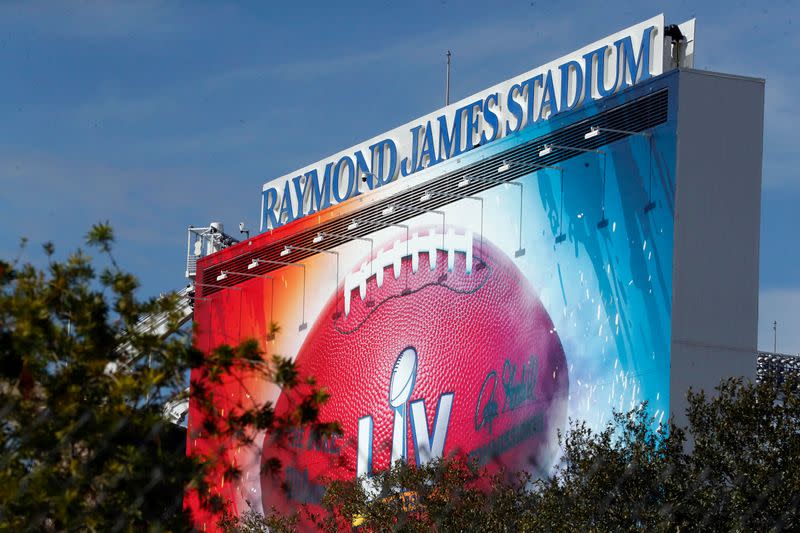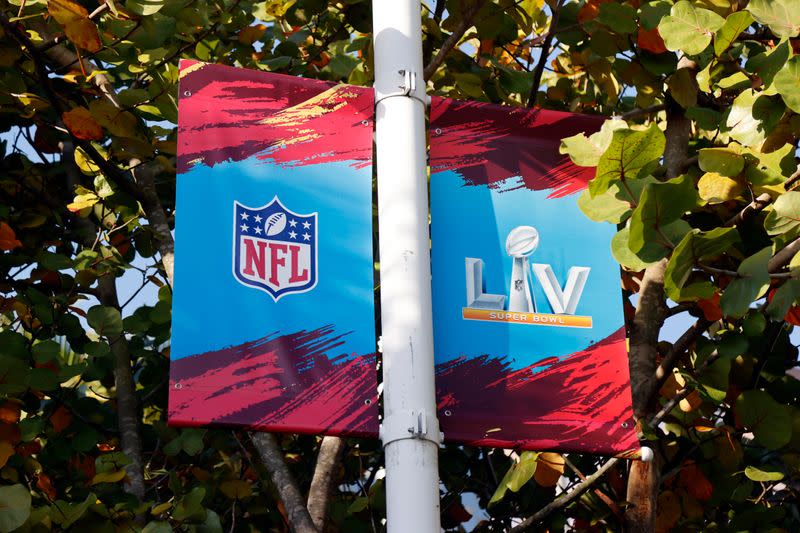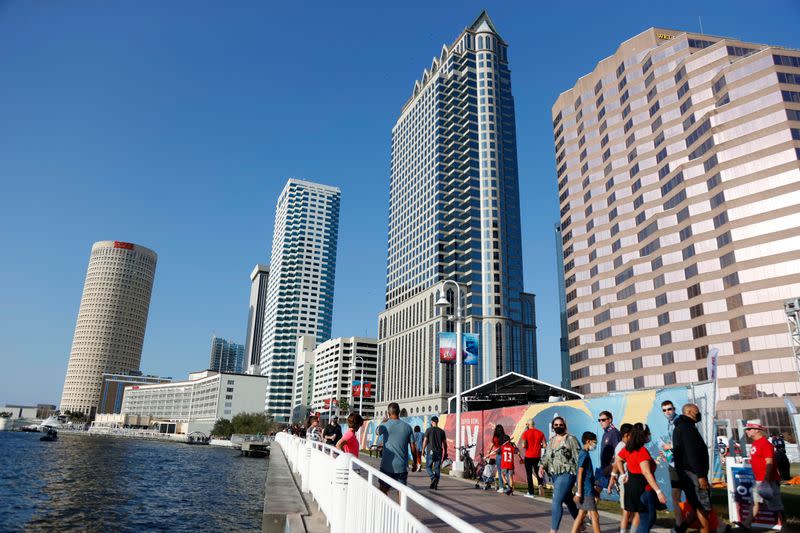Super Bowl organizers, officials grapple with COVID-19 threat
By Amy Tennery
(Reuters) - Fans descending on Tampa, Florida, for Sunday's Super Bowl will be met with strict warnings to mask up and practice social distancing, as the threat of COVID-19 hangs over the biggest spectacle in American sports.
A limited crowd of 22,000 general admission fans - plus 2,700 in suites - will watch the Tampa Bay Buccaneers take on the Kansas City Chiefs inside Raymond James Stadium, with thousands more expected to take part in festivities leading up to the game, putting public health experts on alert.
"It’s a natural breeding ground for potential community spread and I think ... in the weeks following the Super Bowl, we’re going to see some spikes here and around the country," said Jay Wolfson, a professor of public health and senior associate dean at the University of South Florida Health Morsani College of Medicine in Tampa.
The NFL, which faced numerous COVID-19-related schedule disruptions but no outright cancellations during the season, will require all fans to wear provided KN-95 masks at the game, while maintaining a rigidly controlled environment to keep attendees socially distant.
Of the 22,000 general admission fans at the stadium, 7,500 will be vaccinated healthcare workers who were given free tickets by the league.
"We have very strict protocol about (seating) pod integrity, about the spacing, the inflow, the outflow, the use of sanitization, the use of contactless methods," NFL Chief Medical Officer Allen Sills told reporters last week.
Like Wolfson, top U.S. infectious disease specialist Anthony Fauci said last week that the number of attendees set for Sunday was not cause for alarm, so long as fans respected the health and safety regulations in place.
The greater challenge, however, could be beyond the scope of the NFL, with friends and family across the country gathering in households and at private parties to celebrate the game - an annual American cultural tradition.
"Remember that the Super Bowl is surrounded by many events before and after the actual game," said Amira Roess, professor of global health and epidemiology at George Mason University. "There are parties, tailgating, hotel stays ... many of these events are not sponsored by the NFL.
"While the NFL is trying to put in safeguards to reduce the risk at the actual game, it can't affect what will happen at associated Super Bowl festivities."
More than 440,000 Americans have died from the novel coronavirus, as the United States scrambles to distribute vaccines after a holiday surge in new cases.
Just before midnight on Tuesday, new rules went into effect requiring travelers in the United States to wear masks on airplanes, trains, buses, ferries and taxis, as well as inside airports.
Tampa Mayor Jane Castor, who has signed an executive order mandating mask-wearing in outdoor areas where social distancing isn't possible, told Reuters that the rate of positivity within the community was on the decline.
"We have had in place Tampa Police Department and our code enforcement unit ... doing literally hundreds of checks of bars and restaurants over the weekend," said Castor.
"We'll have volunteers out there with masks reminding people that the mask mandate is in place, but we are going to focus on education and encouragement."
(Reporting by Amy Tennery; Editing by Steve Orlofsky)



